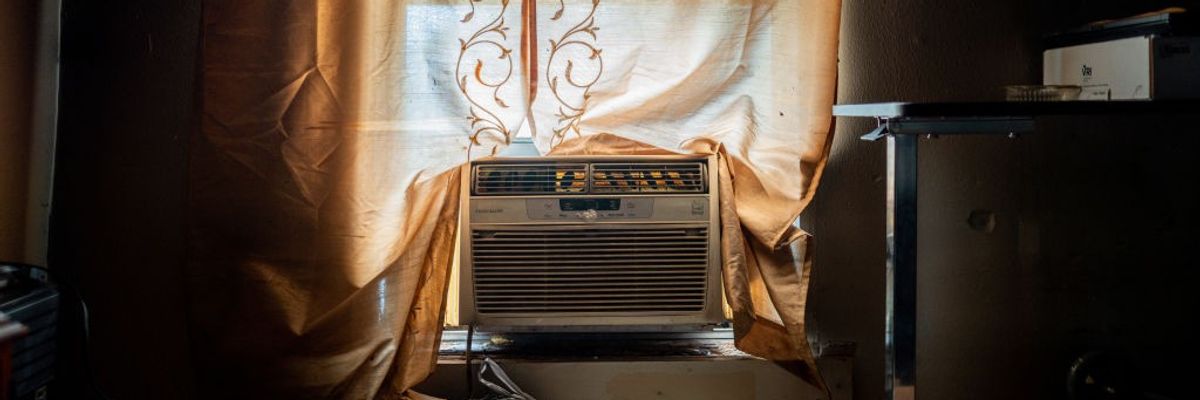Low-income Americans face climbing energy costs and the possibility of summertime power shutoffs—even amid a devastating heatwave—if they can't pay their utility bills, thanks to a lack of legal protections in most states, a report issued Tuesday by a pair of advocacy groups warns.
The Center for Energy Poverty and Climate (EPC) and the National Energy Assistance Directors Association (NEADA) released the report, which calls for an increase in federal funding to address the issue, as more than 100 million Americans this week face heat advisories and extreme temperatures driven by climate change become increasingly common.
Many low-income people face the prospect of extreme heat inside their own homes, as 31 states offer no summer shutoff protections, the groups said.
"For households who will be shut off from electricity this summer because they cannot afford their bills, even being inside their homes is dangerous," the report says. "In less extreme situations, a family can ride out a hot day by opening their windows, taking a cool shower, and hoping it cools down at night. But when the heat persists for weeks, or the outside air is dangerous, opening a window will only make things worse."
EPC and NEADA estimated that the average American household will spend $719 on cooling costs between June and September of 2024, an 8.7% increase over last year. The rising costs of basic goods has left low-income households forced to decide between paying for food, energy, rent, and other essentials such as medicine, the report says.
Despite the increased need, federal funding to help low-income Americans cover their energy costs declined in fiscal year 2024. The Low Income Home Energy Assistance Program budget was cut significantly—from $6.1 billion to $4.1 billion—and only 12% is estimated to be allotted to summer cooling initiatives.
Republicans in the U.S. House of Representatives initiated the cut, which they attempted to make even more dramatic. EPC and NEADA have called for the funding to be restored, and progressive lawmakers have regularly pushed for more funding for the energy needs of low-income Americans in recent years.
Power shutoffs in summer months are common across much of the U.S., and were faced by roughly 1 million customers or more in 2022, according to Sanya Carley and David Konisky, two energy insecurity researchers who wrote about what they call the "disconnection crisis" in The Conversation on Wednesday.
One in four Americans faces energy insecurity—a figure that hasn't improved in the last decade, according to data from the U.S. Energy Information Administration. The problem is prevalent among people with less than two times the federal poverty line income, and especially common in Black and Hispanic households, a 2021 study in Nature Energy found.
Though data are incomplete, disconnections are known to be high in certain parts of the U.S., including the South. "Large investor-owned utilities in Florida, Georgia, South Carolina, and Indiana have averaged disconnection rates near 1% of customers, and some city utilities have been even higher," Carley and Konisky wrote.
The monopolistic power that utilities hold, including their influence in state capitals, contributes to the high prices and the lack of protections. "Energy companies are skimming profits from rate hikes," Food and Water Watch wrote in a briefing released Wednesday, citing examples in California, Louisiana, and Florida.
Residents feel the squeeze and are forced into terribly difficult choices—made worse by the extreme weather caused by climate change.
"Aside from unreasonable rate hikes, my May usage was up 10% from last year because of rising heat," David Coleman, a retiree in Florida, told Food and Water Watch. "I pay that bill out of my UnitedHealthcare healthy food benefit. Less for food; more for energy."
